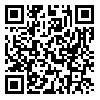Volume 12 -
IJMEHM 2019, 12 - : 58-72 |
Back to browse issues page
Download citation:
BibTeX | RIS | EndNote | Medlars | ProCite | Reference Manager | RefWorks
Send citation to:



BibTeX | RIS | EndNote | Medlars | ProCite | Reference Manager | RefWorks
Send citation to:
Khiabani A. Review of the Ethical and Technical Principles of Working with Zebrafish as a Species of the Biological Model in Medical Science Studies. IJMEHM 2019; 12 :58-72
URL: http://ijme.tums.ac.ir/article-1-6120-en.html
URL: http://ijme.tums.ac.ir/article-1-6120-en.html
Department of Agriculture & Natural Resources, University of Applied Science and Technology, Tehran, Iran
Abstract: (3711 Views)
The Zebrafish is a preeminent model organism that, with its most prominent features, has expanded the boundaries of science in many disciplines. Characteristics of this small freshwater fish, with the help of biologists, showed that it has a highly comparable genetic with mammals such as mice and rats. For example, the emergence of new and efficient methods for duplicating and editing the genome has helped to increase the growth of its use in various fields of science, including toxicology, drug discovery, transplant biology, disease modeling, and even aquaculture. Continued maturation and adoption of the Zebrafish model system require the improvement of methods and approaches for the cultivation and management of these fishes in controlled reservoirs, so that, ultimately, research on this fish is more reusable, cost-effective and in a framework for ethics in research. Knowledge and technology transfer from laboratory science, medicine, and aquaculture is a necessary part of this development, which should be in line with ethical standards in science. In this paper, we would consider the ethical and technical principles of working with Zebrafish as a species model in studies of medical sciences.
Keywords: Biomedical aquaculture, Ethics in research, Laboratory animals, Ornamental fish, Zebrafish
Type of Study: Review |
Received: 2019/03/28 | Accepted: 2019/06/12 | Published: 2019/07/16
Received: 2019/03/28 | Accepted: 2019/06/12 | Published: 2019/07/16
| Rights and permissions | |
 |
This work is licensed under a Creative Commons Attribution-NonCommercial 4.0 International License. |





